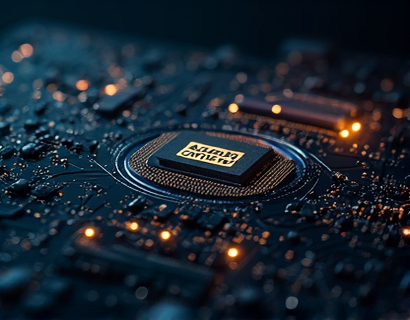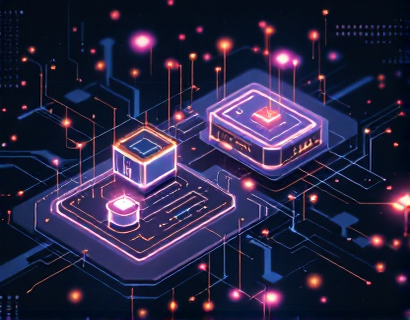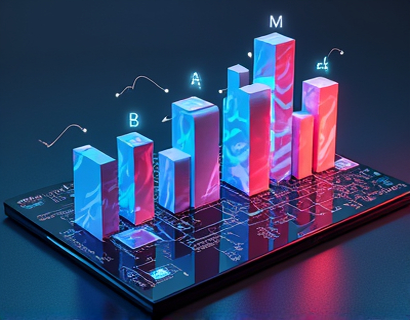Blockchain Oracle Management: Streamlining Data Integration and Enhancing Smart Contracts for Developers and Businesses
In the rapidly evolving landscape of blockchain technology, the role of oracles emerges as a critical component for connecting decentralized applications (DApps) with external data sources. Oracles serve as bridges, providing real-time data and enabling smart contracts to interact with the off-chain world. However, managing these oracles efficiently remains a challenge for developers and businesses aiming to harness the full potential of blockchain. This article delves into transformative software solutions that streamline oracle management, enhance data integration, and boost smart contract capabilities, ultimately unlocking the full potential of blockchain technology.
Understanding Oracle Management in Blockchain
Oracle management in blockchain refers to the process of integrating external data sources into smart contracts. These data sources can include APIs, databases, IoT devices, and more. The primary function of an oracle is to fetch data from these sources and relay it back to the blockchain, allowing smart contracts to make informed decisions based on real-world data. Effective oracle management ensures that this data is accurate, timely, and secure, which is crucial for the reliability and trustworthiness of DApps.
Challenges in Traditional Oracle Management
Traditional oracle management faces several challenges that hinder the seamless operation of blockchain applications. One major issue is data latency, where delays in data retrieval can lead to outdated information being used by smart contracts. This can result in incorrect executions and undermine user trust. Another challenge is data security, as oracles often handle sensitive information. Ensuring that this data is protected from tampering and unauthorized access is paramount. Additionally, the complexity of integrating multiple data sources and maintaining consistency across different platforms adds to the difficulty.
Transformative Software Solutions for Oracle Management
To address these challenges, innovative software solutions have emerged, focusing on streamlining oracle management and enhancing smart contract functionality. These platforms offer advanced features that simplify data integration, improve security, and reduce latency. By leveraging these tools, developers and businesses can build more robust and reliable DApps.
Real-Time Data Integration
One of the key benefits of modern oracle management solutions is their ability to provide real-time data integration. These platforms utilize sophisticated algorithms and distributed networks to fetch data from various sources simultaneously, ensuring that smart contracts always have access to the most current information. This real-time capability is essential for applications that require up-to-date data, such as financial trading platforms, supply chain management systems, and IoT-driven applications.
For instance, a financial DApp can use real-time data from stock exchanges to execute trades based on specific conditions. Without a reliable oracle, the smart contract might act on outdated data, leading to suboptimal or incorrect outcomes. With advanced oracle management, the smart contract receives the latest market data, ensuring that trades are executed accurately and efficiently.
Enhanced Security Measures
Security is a top priority in oracle management. Transformative software solutions implement multi-layered security protocols to protect data integrity and prevent tampering. These measures include decentralized data sourcing, where data is aggregated from multiple independent oracles, reducing the risk of a single point of failure. Additionally, cryptographic techniques such as zero-knowledge proofs and homomorphic encryption are employed to ensure that data remains confidential and tamper-proof.
Another critical aspect is the implementation of reputation systems, where oracles are rated based on their reliability and accuracy. This incentivizes oracles to provide high-quality data, as their reputation directly impacts their ability to participate in the network. Developers can thus select oracles with a proven track record, minimizing the risk of data breaches and inaccuracies.
Reduced Latency and Improved Performance
Latency remains a significant bottleneck in traditional oracle systems. Advanced oracle management platforms address this by optimizing data retrieval processes and leveraging edge computing. Edge computing involves processing data closer to the source, reducing the time it takes for data to travel to and from the blockchain network. This results in faster data delivery and more responsive smart contracts.
Furthermore, these platforms often utilize caching mechanisms to store frequently accessed data, reducing the need for repeated data fetches and further lowering latency. By minimizing delays, developers can create DApps that offer a seamless user experience, comparable to traditional centralized applications.
Seamless Data Integration Across Multiple Sources
Modern oracle management solutions facilitate seamless data integration from a wide array of sources. This is particularly important for complex DApps that require data from multiple external systems. The platforms provide unified APIs and SDKs that simplify the integration process, allowing developers to connect various data sources without delving into the complexities of each API.
For example, a supply chain management DApp can integrate data from suppliers, logistics providers, and customs authorities. By using a comprehensive oracle management solution, the DApp can aggregate and synchronize data from these diverse sources, ensuring a cohesive and accurate view of the supply chain. This level of integration is crucial for applications that need to make decisions based on comprehensive and consistent data.
Scalability and Flexibility
Scalability is another critical factor in oracle management. As DApps grow and evolve, the oracle network must scale accordingly to handle increased data volumes and complexity. Advanced platforms are designed to scale horizontally, adding more oracles and data sources as needed without compromising performance. This ensures that the system remains efficient and reliable, even as the application expands.
Flexibility is also a key feature, allowing developers to customize oracle configurations based on specific application requirements. Whether it's adjusting the frequency of data fetches, selecting specific data fields, or integrating custom data sources, these platforms offer the necessary tools to tailor the oracle management to the unique needs of each project.
Case Studies and Real-World Applications
To illustrate the practical benefits of these advanced oracle management solutions, consider a few real-world applications.
In the financial sector, a decentralized lending platform can leverage real-time data from multiple credit rating agencies and financial institutions to assess loan applications. By using a robust oracle management system, the platform ensures that lending decisions are based on the most current and accurate credit information, reducing the risk of default and enhancing user trust.
In the IoT domain, a smart city initiative can utilize oracles to collect and process data from various sensors monitoring traffic, pollution, and energy usage. A well-managed oracle network ensures that the data is updated in real-time, enabling the city to make informed decisions and optimize resource allocation. This not only improves efficiency but also enhances the quality of life for residents.
Future Trends and Innovations
The field of oracle management is continually evolving, with several emerging trends and innovations on the horizon. One such trend is the integration of machine learning and AI to predict and preprocess data, further enhancing the accuracy and reliability of oracles. By analyzing historical data patterns, these systems can anticipate and adjust for potential data anomalies, ensuring that smart contracts always have access to high-quality information.
Another area of innovation is the development of cross-chain oracles, which enable data to be shared and synchronized across different blockchain networks. This interoperability is crucial for building decentralized ecosystems where data and assets can flow freely between various platforms. Cross-chain oracles will play a vital role in creating a more interconnected and efficient blockchain landscape.
Conclusion
In conclusion, the integration of advanced oracle management solutions is essential for developers and businesses looking to build robust and reliable blockchain applications. By addressing the challenges of data latency, security, and integration complexity, these platforms enable real-time, secure, and accurate interactions within DApps. As the blockchain ecosystem continues to grow, the importance of efficient oracle management will only increase, driving further innovations and expanding the potential of decentralized technologies.










































